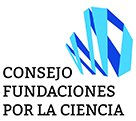In late 2005, The Lancet published a study where the use of beta-blockers in the treatment of high blood pressure was confirmed to increase the risk of stroke, and where its effectivity as first-choice therapy vs. other antihypertensive drugs was questioned. While this publication shook the ground of a treatment that had been widely accepted and applied by the medical community, it also provided another example of an intrinsic –and frequently ignored– value of science: the changing character of its evidences.
The variability of scientific ‘truths’ was precisely the topic of this meeting organized by the Esteve Foundation within the framework of the XVII Edition of the Public Health Summer School, held yearly at the Lazareto of Menorquian capital Maó. Because this changing reality affects the whole society, a variety of points of view were shared, ranging from clinicians who must assume these changes as part of daily practice to professionals in charge of transmitting scientific information to society, including biomedical journal editors and media in general.
This meeting was titled Interactions between Pharmacology, Healthcare and Public Health and included three submissions and further discussion by all attendants. The meeting was moderated by Esteve Fernández, from the Catalan Institute of Oncology and director of the journal Gaceta Sanitaria, and by Fèlix Bosch, from the Esteve Foundation.
The first lecture was delivered by Vicente Alfaro, a Medical Writer of the biopharmaceutical company PharmaMar, who offered a vision of the different criteria that have provided the basis to Medicine throughout its history. For example, if the early 20th century was characterized by eminence-based medicine –medicine based on the word of renowned physicians–, the mid-20th century onwards has seen the era of evidence-based medicine.
With its pros and cons, current medical science rests on scientific bases supported by quality studies. As shown, however, these bases may be overcome and refuted by new ones. As quoted by Alfaro, any progress is nothing but a constantly rectified error. It is therefore the clinician’s mandatory task to update his/her information when making a decision.
Xavier Bonfill, director of the Ibero-American Cochrane Center, an institution specializing in systematic reviews, posed the relativity of scientific evidences on account of important biases existing in the results of related investigations. Among others, funding bias –where certain results are omitted for economic reasons– and publication bias –where not every investigation ends up in a scientific article– were discussed. Bonfill insisted on the importance of review studies, which provide additional information in clinical decision making, as a measure to palliate this deficiency.
Finally, Francisco Pozo, from the Pneumology Department of Madrid’s Hospital 12 de Octubre, reflected very frankly on the clinician’s task, which involves betting constantly while assessing the benefit-harm balance before treatment prescription. “We never work with certainties”, says Pozo on his profession. A vision not shared by a part of society, accustomed precisely to receive medical certainties and statements. This will to emphasize the changing character of scientific evidence should involve the whole cast of actors, including the scientific community, the public administration, biomedical journals and journalists, as well as patient associations and citizens in general.






